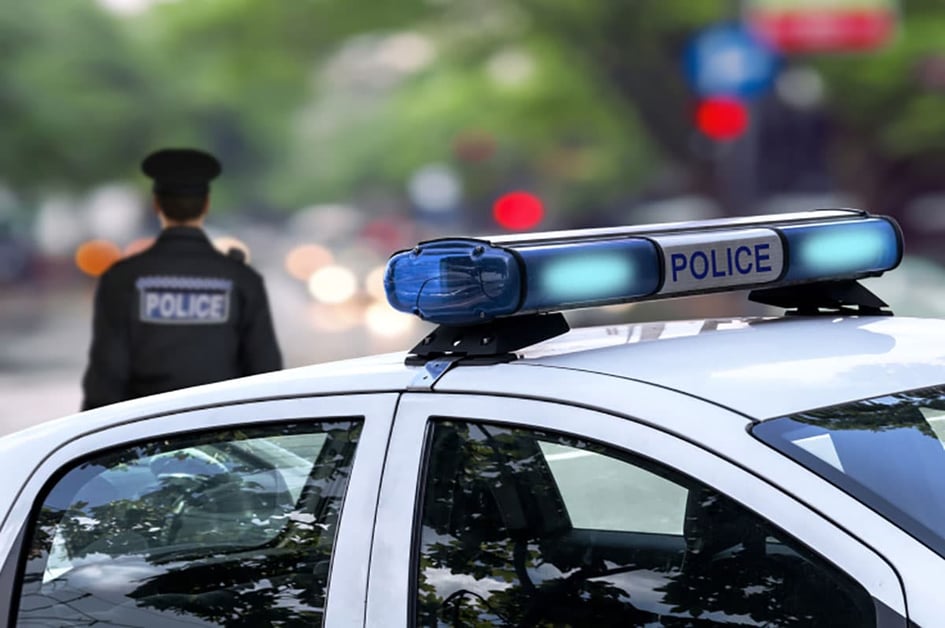DISCLAIMER TO OUR LEO FRIENDS: This article is not meant to offend or insult anyone in law enforcement. It is meant to apprise the readers of their constitutional rights. Like all law enforcement, while in uniform you are an actor of the state. However, when you take off the uniform you are also a citizen fully equipped with all the same constitutional liberties as those you interact with on your job. As such, this information should be appreciated by you in your individual capacity, and hopefully respected by you when acting on behalf of the state. The readers of this article are mainly concealed firearm permit holders. Meaning, they are exceptionally law abiding citizens. It is not our intent to help criminals conceal firearms during traffic stops, we simply want to help the law abiding remain law abiding while navigating a very complicated spiderweb of firearm laws.
Let’s have a very blunt conversation about interacting with law enforcement while in possession of a firearm. This article is not meant to focus on when a police officer has a legal right to stop you, but instead is meant to cover the less analyzed issue of what are the legal implications of informing an officer that you are carrying a firearm? I am going to offer this article from a purely legal standpoint, the same way I would advise a client. There are obviously differing opinions on how you should handle a police stop. It is not my intent to address how you should, but instead to analyze what the legal implications are of certain conduct during a stop.
Let’s start at the beginning. Relating to police stops of concealed permit holders there are three categories of states, namely:
- Duty to Inform States: States where you are required by law to affirmatively disclose the presence of your firearm (e.g. Ohio, Michigan, etc.).
- Quasi Duty to Inform States: In these states you do not have to affirmatively inform the officer of the presence of your firearm, but state law requires you to still do something, such as respond if you are asked if you have a weapon, or provide your permit if it is requested of you. The range of requirements for these states varies significantly (e.g. Iowa, Texas, etc).
- No Duty to Inform States: In these states you have no legal obligation to inform the officer if you are carrying and you generally have no legal obligation to respond if you are asked (e.g. Utah, Georgia, etc.).
This article is not meant to be a state by state summary, we sell a book and mobile phone app that contains that information and Concealed Nation also has a great article on that topic here. Instead, I want to walk you through what the legal implications are of disclosing the presence of your weapon to a police officer.
IMPLICATION NUMBER 1: WAIVING YOUR FOURTH AMENDMENT RIGHTS
A potential outcome of informing an officer that you have a firearm is that the officer might then have the ability to perform what is called a Terry Stop or a Terry Frisk. The Terry Doctrine stems from a 1968 Supreme Court case, Terry v. Ohio. In Terry, the United States Supreme Court held that an officer may perform a protective frisk and search pursuant to a lawful stop when the officer reasonably believes a person is “armed and presently dangerous to the officer or others.” (see: 392 U.S. 1, 24, 88 S.Ct. 1868, 20 L.Ed.2d 889 (1968)). This also gives the officer authority to temporarily disarm the permit holder “in the interest of officer safety.” The Court did caution that a search “is a serious intrusion upon the sanctity of the person” and should not be taken lightly. Still, the basis for the search itself is largely left up to the officer’s discretion once he is made aware of the presence of a weapon.
The sole purpose for allowing the frisk/search is to protect the officer and other prospective victims by neutralizing potential weapons. (see: Michigan v. Long, 463 U.S. 1032, 1049 n. 14, 103 S.Ct. 3469). As an example, a Terry Stop allows a police officer to remove you from your vehicle, pat down all occupants of the vehicle (using the sense of touch to determine if they are armed), as well as search the entire passenger compartment of the vehicle including any locked containers that might reasonably house a weapon. In other words, telling a police officer you have a firearm on you or in your vehicle can serve as a waiver of your Fourth Amendment rights and allow the officer to conduct a warrantless search.
This issue was recently highlighted in a recent 4th Circuit Court of Appeals case United States v. Robinson. In Robinson, the court extended the Terry Doctrine further than it previously had. In its ruling, the court stated that because firearms are “categorically dangerous
an officer who makes a lawful traffic stop and who has a reasonable suspicion that one of the automobile’s occupants is armed may frisk that individual for the officer’s protection and the safety of everyone on the scene.” (source)
Or as Judge Wynn ominously wrote in his concurring opinion, “those who chose to carry firearms sacrifice certain constitutional protections afforded to individuals who elect not to carry firearms.”
The waiver of your Fourth Amendment rights is why states with “duty to inform” laws create such a constitutional dilemma. If, as a condition to carrying a firearm, I am required by law to inform an officer that I have a firearm in my vehicle, then I am simultaneously required to waive my Fourth Amendment privacy rights. That is a violation of the unconstitutional-conditions doctrine and is long overdue for a legal challenge.
BUT PHIL, POLICE OFFICERS ONLY PUT CRIMINALS IN JAIL, AND I’M NOT A CRIMINAL!!! WHY WOULD I CARE IF I GET SEARCHED?!?
IMPLICATION NUMBER 2: YOU ARE A CRIMINAL, YOU JUST DON’T KNOW IT…YET
You are a criminal, we all are from time to time. Do you have any idea how many gun laws there are out there? No? Neither does our own department of justice. If you don’t even know how many gun laws there are, how can you possibly know you are abiding by all of them simultaneously? Justice Robert Jackson (U.S. Supreme Court Justice) once said, “any lawyer worth his salt will tell the suspect [his client], in no uncertain terms, to make no statement to the police, under [any] circumstances.” The reasoning behind Justice Jackson’s quote isn’t because police officers are bad, it is simply because the average civilian has no idea how many laws they may be breaking at any given time. As a prosecutor, and later a defense attorney, I deal with clients routinely that are charged with crimes they had no idea they were committing.
Here is a simple example of how the “I have nothing to hide” mentality can land you in jail. Let’s imagine you are a Utah resident and a Utah concealed permit holder. Your Utah permit is valid in well over 30 states so you decide to take a road trip with your firearm. As you’re driving through Idaho (where your permit is valid) you get pulled over for speeding in a school zone. Because you are an upstanding citizen and you have nothing to hide, you tell the officer that you have a firearm in the vehicle. Aaaaannd now you’re a felon. Wait, what? How did that happen? Let’s review why you’re now a felon.
18 U.S.C.A. § 922(q)(2)(A), otherwise known as the Federal Gun-Free School Zones Act (GFSZA), states that:
It shall be unlawful for any individual knowingly to possess a firearm that has moved in or that otherwise affects interstate or foreign commerce at a place that the individual knows, or has reasonable cause to believe, is a school zone.
The term “school zone” means in, or on the grounds of, a public, parochial or private school; or within a distance of 1,000 feet from the grounds of a public, parochial or private school. The term “school” means a school which provides elementary or secondary education, as determined under State law (see 18 U.S.C.A. § 921).
There are a few narrow exceptions to this law, one of which is:
“if the individual possessing the firearm is licensed to do so by the State in which the school zone is located or a political subdivision of the State, and the law of the State or political subdivision requires that, before an individual obtains such a license, the law enforcement authorities of the State or political subdivision verify that the individual is qualified under law to receive the license;” 18 U.S.C.A. § 922 (emphasis added)
You have a permit from Utah which is valid in Idaho, but was not issued by Idaho, which means this federal law is in full force against you. See how fun that is? Don’t worry, the penalty for violating the law is only 5 years in prison and a $5,000 fine. If you would like more details about this law you can read the ATF’s analysis of it here.
Of course, as is often the case, the Idaho police officer may sympathize that you are not intending to violate the law and may choose not to escalate the situation beyond a mere traffic stop. Millions of people violate the GFSZA every year and few are prosecuted. Given the harsh penalty, however, it’s not a gamble I personally want to take.
IMPLICATION NUMBER 3: SEARCHES ARE ALMOST ALWAYS BAD.
I would challenge anyone reading this to think of any instance where someone waiving their rights, or consenting to a search/seizure, has made their life better. In my career I certainly haven’t seen it. I have, however, seen a significant amount of good people get charged with serious crimes because they were overly generous with the amount of information they shared with law enforcement. It is my experience that nothing good can come from waiving your rights. Consider the wording of the the oft cited Miranda warning:
The warning of the right to remain silent must be accompanied by the explanation that anything said can and will be used against the individual in court. Miranda v. Arizona, 384 U.S. 436, 469, 86 S. Ct. 1602, 1625, 16 L. Ed. 2d 694 (1966) (emphasis added).
Can and will be used against you. The best case scenario of waiving your rights is you get to go home. The worst case scenario is you go to prison.
Once again, it is not our intent to tell you how you should interact with law enforcement or imply in any way that law enforcement are villains or out to get you. As a prosecutor I worked with law enforcement every day, and as a firearm instructor over the past decade I can say some of the best people I know are police officers. Police officers, by and large, support the shooting sports community and are members of it themselves. We strongly encourage everyone to treat law enforcement with respect. Very little is accomplished in life by acting belligerent, rude or demeaning.
Phil Nelsen is a nationally recognized firearms law attorney, expert witness, college professor, author and co-founder of Legal Heat, the nation’s largest firearms training firm.
Legal Heat offers CCW classes nationwide, and also publishes the industry leading Legal Heat 50 State Guide to Firearm Laws and Regulations which can downloaded on iTunes, GooglePlay and Kindle App stores. You can purchase the paperback version of the Legal Heat 50 State Guide or sign up for a class at https://mylegalheat.com










![[VIDEO] Trump Tweet Shows The Problems With Red Flag Laws After Chris Cuomo Loses It On Camera](https://imagedelivery.net/sbm_lYeJbALkepJgtmRD5w/concealednation.org/2019/08/ScreenHunter_2542-Aug.-13-14.14.jpg/w=728,h=381)
![[VIDEO] *WARNING: GRAPHIC* Man Has Finger Impaled By Bullet Casing While Trying To Remove Primer](https://imagedelivery.net/sbm_lYeJbALkepJgtmRD5w/concealednation.org/2016/10/Images500001-1.jpg/w=728,h=381)


